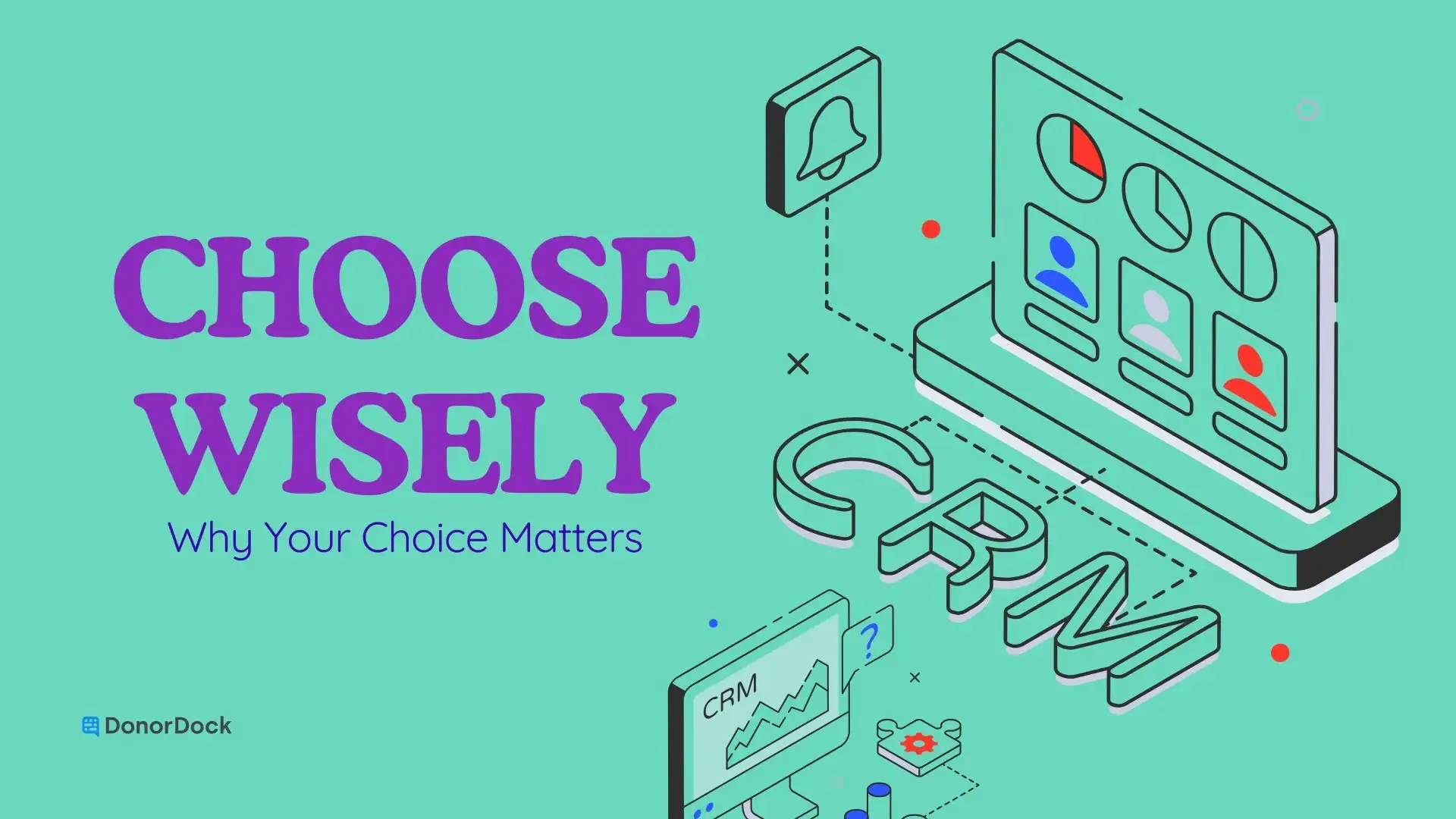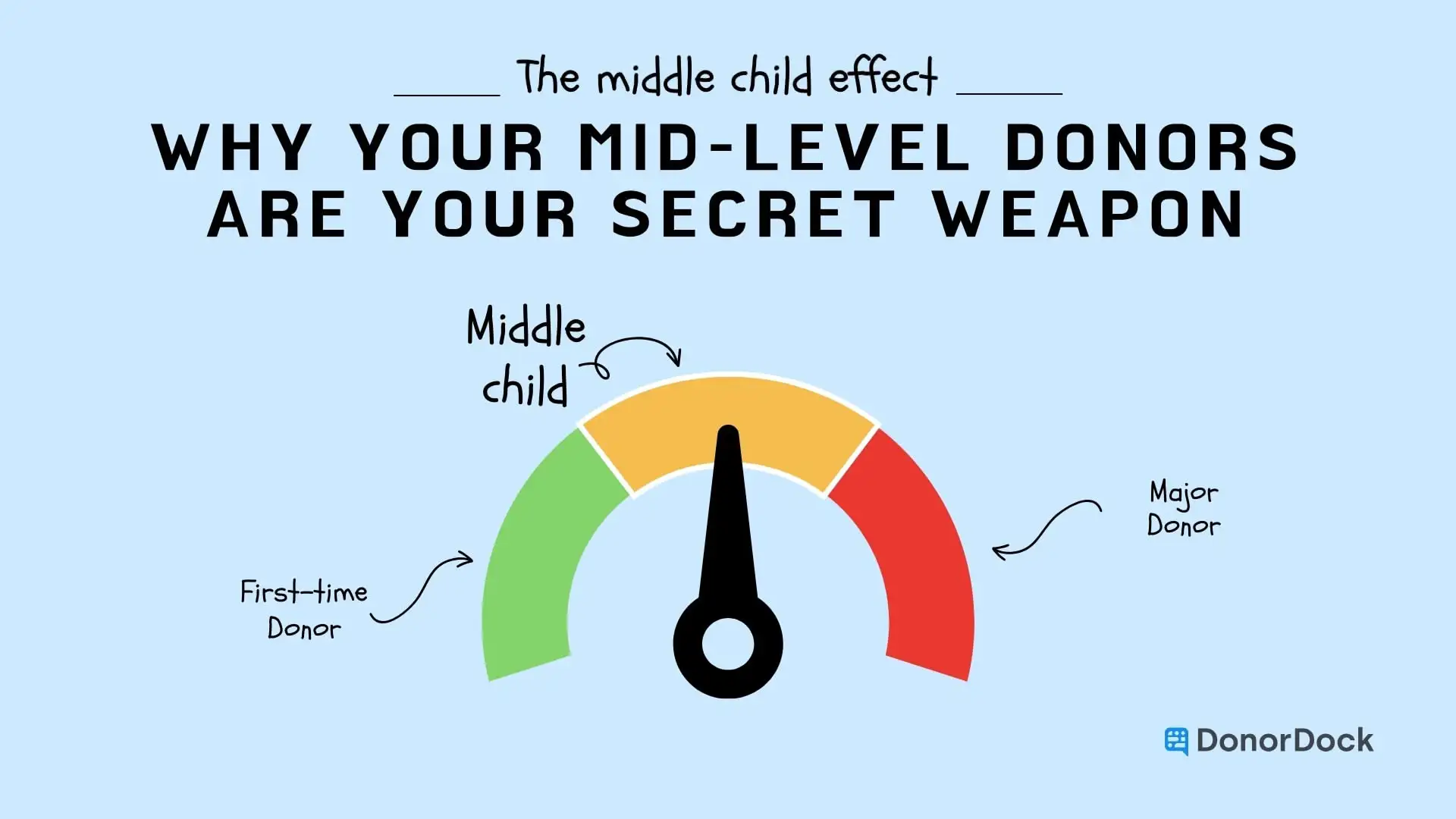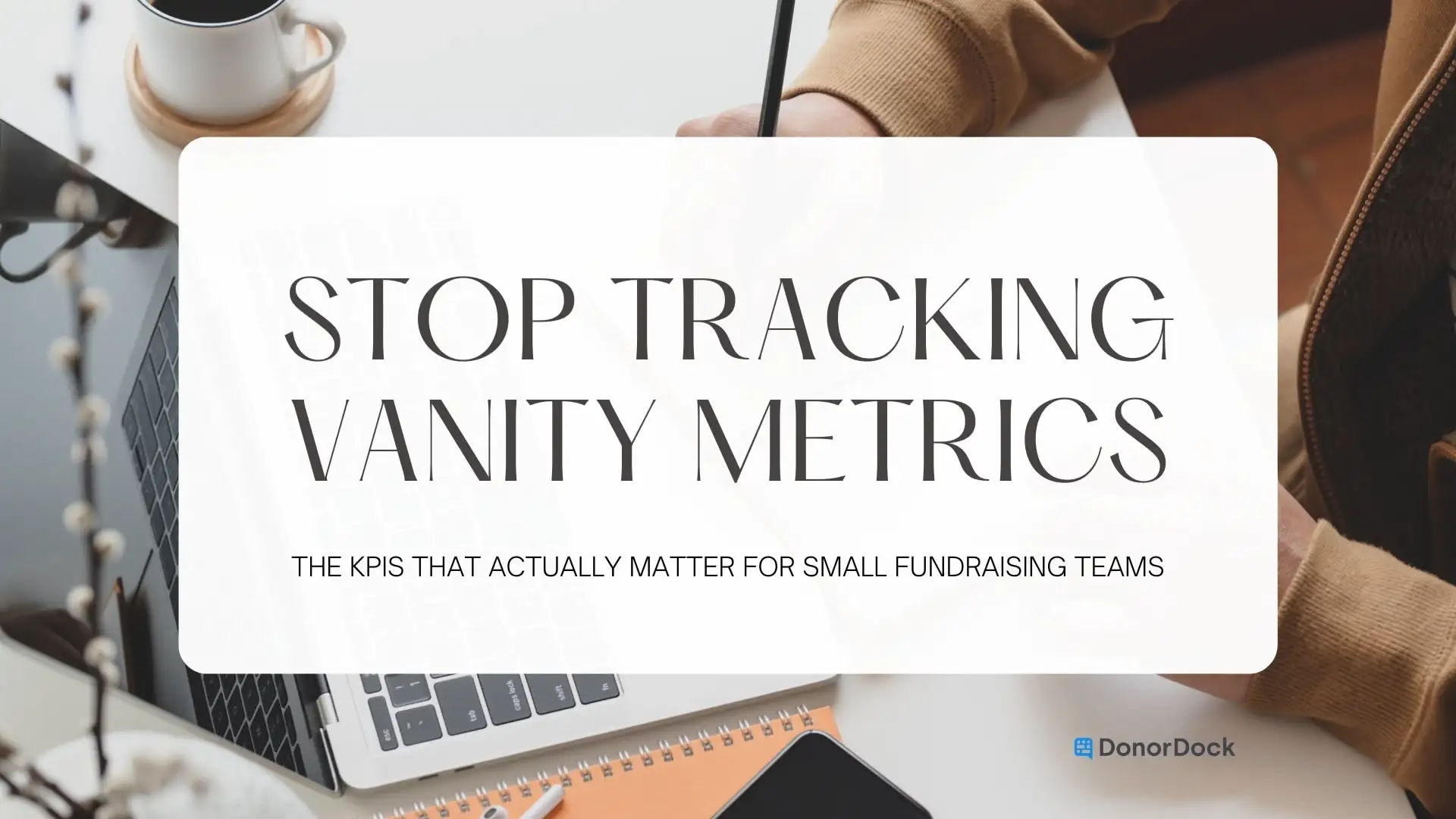Relationships are at the heart of successful fundraising. In recent years fundraising has changed from a simple transaction to a relationship-building process. By creating a strong bond with supporters, nonprofits aim to inspire a genuine passion for their cause, making it easier for donors to say yes when asked for support.
Today, donors often have a relationship with a nonprofit before they make a donation. Their prior interactions with a nonprofit are crucial to their decision-making process. Donors want to know the impact their donation will have. They also consider factors like how the nonprofit has communicated with them and the relevance of their materials.
To increase donor engagement and strengthen relationships, fundraisers must put communication and personalization first. By keeping donors informed about the impact of their donations and making them feel valued, you can form long-lasting relationships with their supporters.
Build Trust with Relationship Fundraising
Relationship fundraising often means taking a slower approach. It takes intentionality to know your donors as people, not just as a funding source. It's about looking past the transaction and looking at the long-term impact that can be made through meaningful relationships. Through relationships, you build trust between you and your donors. When donors know that you care deeply about others, they are more likely to continue supporting your nonprofit.
And when it comes to building relationships, it's a two-way street. It's about how you can both mutually benefit one another. Donors want to know that they are making a difference in their community. When you view people as people and aim to do good for them, the outcome will ultimately help both parties.
“It’s looking past what the person can do for you and looking to who they are, and wanting to connect with them on that deep level...I look at a donor. I look at that relationship for what it is and how I can help that person and how they can help me. It's both. It's mutual.”
- John Fisher, Friends of the Children Fargo-Moorhead
Relationship Fundraising creates a culture of care
According to the Executive Director at Friends of the Children Fargo-Moorhead, John Fisher, this take on fundraising goes beyond just donors. It also extends to team members and staff who are working towards the same mission. He has created a culture of care within his nonprofit that has a holistic impact on the community. People who donate to Friends of the Children care not only about the children being served but also about the people who actively serve the community."
I'm motivated by my team. My team is motivated by who they serve. So, in turn, I'm motivated by who they serve and I'm looking to bring people on board with us donor-wise that feel the same—that care about the kids, that care about the mentors. I cannot tell you how often [our donors] ask me about “are we paying competitively our team? Are we benefiting them well?” And that is such an encouraging thing to hear.
- John Fisher
When you care about your team and their well-being, they in turn pass that care on to the people they serve. It's a beautiful cycle that inspires everyone involved. Donors see how you care about one another and want to be a part of that. Donors who ask about the well-being of the staff care about the mission and its long-term success.
Relationship Fundraising helps you weather the tough times
Additionally, strong relationships with donors help organizations weather tough times. In times of economic uncertainty, donors are more likely to continue giving to nonprofits with which they have a strong relationship, even if they have to cut back on giving in other areas.
Donors who care about the people serving in your nonprofit will also care about the longevity of your nonprofit. They are motivated to give and continue to impact the community.

Personalize your communication
One of the best ways to build relationships with donors is to personalize your communication with them. This means addressing them by name, sending messages based on their interests, and showing them that you value them. Phone calls and text messages can also add a more personal touch and help you build relationships
Engage donors in meaningful ways
Donors want to feel that they are making a real impact. Engage them by sharing stories of their donations’ impact, and also by inviting them to events or to volunteer. You can also ask for their input on important decisions.
Get to know what is important to your donors. Ask what matters to them. And, importantly, find out both what motivates them and how they’d like to help see change happen within their community. Let them know that their voice and dollars matter.
Say thank you often
With relationship fundraising, it's important to thank donors often. It’s important that thank yous go beyond just recognizing a donor's monetary giving. When donors give in other ways take time to recognize their support of your nonprofit. A simple thank you note, phone call, or email can go a long way in making donors feel appreciated. When donors know that you value them, they are more invested in the work you are doing.
Build a community around your cause
Creating a sense of community around your organization helps donors feel more tied to your mission. Ways to grow your community can be hosting events, keeping donors up-t0-date, and sharing how your donors are changing the community. It can also be sending out a regular newsletter.
Be transparent
It is important to be open about your nonprofit's finances and how a donor's giving is being used to support your mission. You build trust with your donors when they know you are handling your finances with integrity.
Building Strong Relationships through Relationship Fundraising: Key Takeaways
Building strong relationships with donors is critical to successful fundraising. By personalizing your communication, engaging donors in meaningful ways, saying thank you often, building a community around your cause, and being transparent, you can create meaningful connections with your donors that will help you reach your fundraising goals.
At the end of the day, fundraising is about making people's lives better. It's about your community and creating positive change. When relationships are at the center of this work, the impact can be even greater. So let's focus on relationships and strive to make a difference together.












